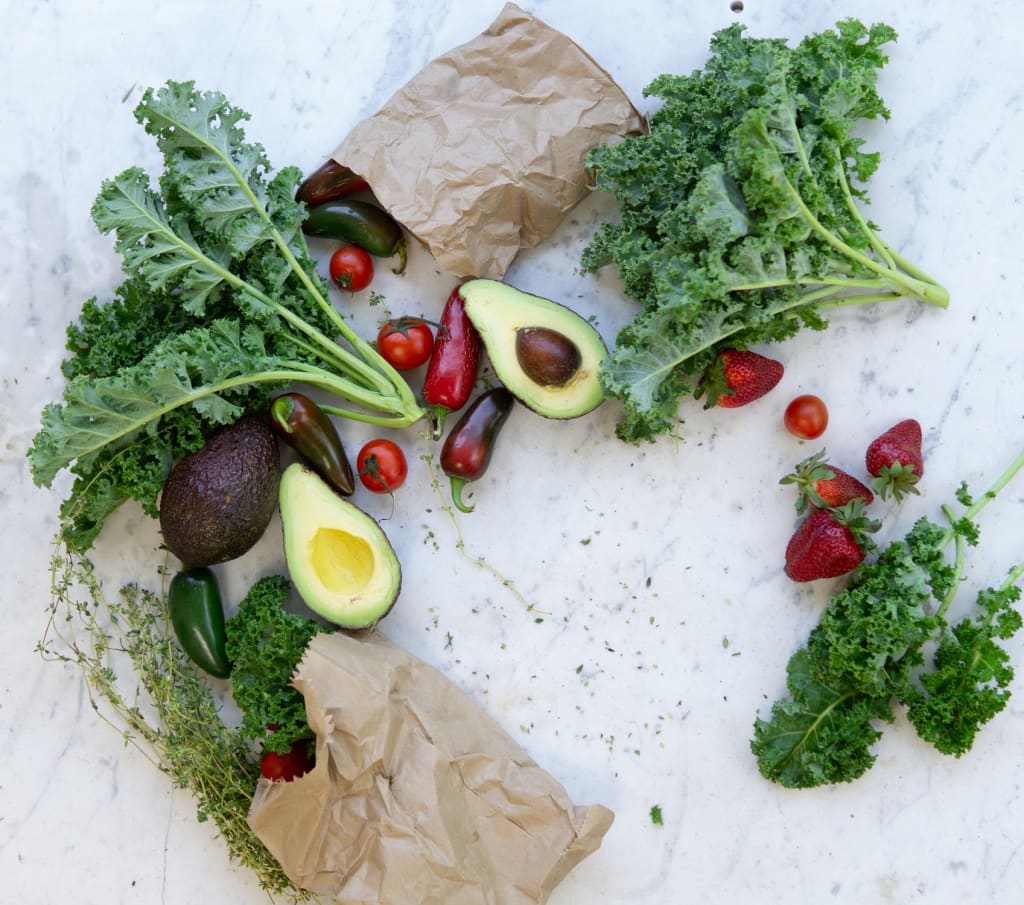7 Benefits of Switching to Organic Food
If you are a type of person that prioritizes quality over quantity, and you are keenly aware of the difference in prices, you should consider purchasing organic food, simply because it is a more substantial source of nutrients.

The question of whether organic food has any merit as a healthier alternative is a controversial one. The reason for this is because it should be healthier in theory, but you should be keenly aware of the fact that produce is defined as organic within certain parameters, and a willing grower of these groceries can find holes in these parameters in order to save money, and still retain the required stamp of approval. Still, the bottom line is that the organic variety truly is healthier most of the time, so it really ends up being a question of whether the quality corresponds fairly to the increase in pricing. In order to be certain about this conundrum, you should just take a look at seven benefits of switching to organic food.
1. Nutrients Abound
The first and the most lauded benefit of organically cultivated produce is that it is packed with nutrients. Mass-produced fruits and vegetables are usually hybrid variants grown under mechanized circumstances with efficiency in mind. Organic food has the taste, and the proverbial punch of the fruits and vegetables of yore.
2. Pesticide-Free
Of course, the benefit that goes hand in hand with the first one is the fact that they are (mostly) chemical free. While in various countries certain details in regulations differ, which allows for reasonable protection from pests and other parasites, when you sink your teeth into an organic apple, you can rest assured that it is as healthy as they come today. Pesticides are getting stronger and stronger, as parasites become more resistant to them, which increases the necessity of switching to organic produce at least partially.
3. It is filling, and it tastes better.
As it has already been mentioned, nutrient-rich organic food packs one hell of a punch in favor of your immunity, plus it simply tastes better due to the way it was cultivated. According to these two parameters, and when you take the first two benefits into consideration as well, it is only logical that a singular fruit or a vegetable of organic origin is much more filling than the genetically modified, factory-grown variations. You will satiate your hunger faster, eat less, and get the nutrients that you need without cramming empty calories into your stomach.
4. You Are Confident About its Origins
In order to fulfill the parameters of what is standardized as organic food, organizations that produce it need to fully adopt transparency of the process. Everyone, from government officials and retailers to buyers, needs to be able to learn precisely about what makes the produce you are purchasing organic, and it has never been as easy to do so as in the age of the internet.
When you purchase the finest organic food online, you also have a precious chance to get a glimpse of the entire process, really learn about the love and care that goes into the production of this highly nutritious food, and the sacrifice that goes along with trying to build a sustainable future where everyone can take a healthy bite.
5. The Heart Factor
It may sound like a stretch, but eating organic food will keep your heart healthier. Yes, you have read that right, and there is a sound scientific explanation behind this. Vitamin and mineral rich greenies increase the presence of a particular compound in your blood stream. This compound is known under the abbreviation of CLA - which is translated as conjugated linoleic acid, which is very beneficial for cardiovascular health and, more specifically, the heart.
6. Quality of Life for Animals
Did you know that the CLA is also found in animal meat? If you are not a vegetarian or a vegan and you unabashedly enjoy a hearty homemade roast, you should know that purchasing organic meat promotes better quality of life for animals. Caged animals, which are killed in a mechanized way usually have a tissue that is packed with damaging fight-or-flight hormones. Animals grown for organic meat are not caged, they usually have a pasture they can spend their life roaming about, and they are typically bred with dignity.
7. Farmers benefit
As it has been implicated in the fourth item on the list of these benefits, cultivating organic food increases our chance to have a better, more sustainable future. This is the best of all possible scenarios for both the farmer and the customer. Practices of growing foods in natural ways preserve the soil and plant life from the influx of nightmarish chemicals, and keeps it more durable and fertile.
If you are the type of person that prioritizes quality over quantity, and you are keenly aware of the difference in prices, you should consider purchasing organic food, simply because it is a more substantial source of nutrients. Additionally, it goes without saying that there is a significantly reduced presence of pesticides and other harmful chemicals within the plant tissue. It is true that organic goods are in shorter supply, they can be harder to find, and the prices can ramp up depending on the season, but, if you do not feel particularly convinced yet, give yourself a chance to enjoy an ‘organic food day,’ and see if the difference is worth it for you.






Comments
There are no comments for this story
Be the first to respond and start the conversation.